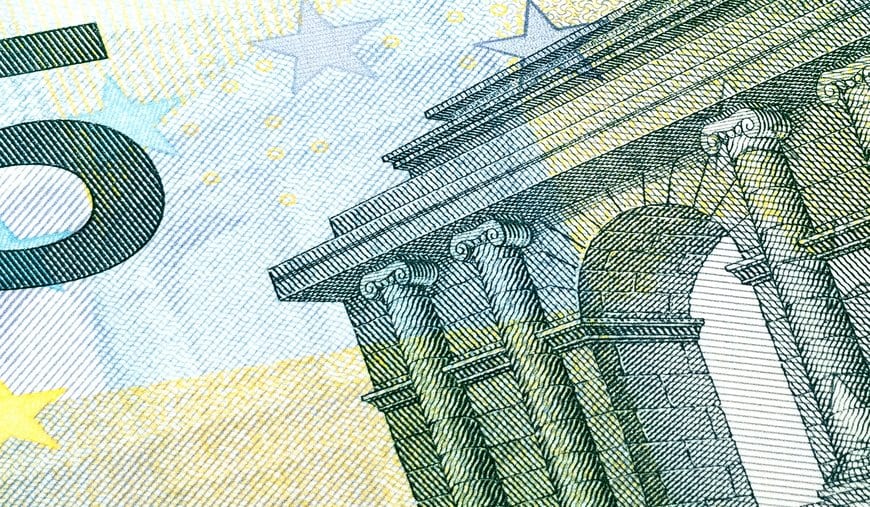January debt detox—transform your debts in 3 easy steps
According to the latest survey conducted by travel and leisure website, lastminute.com, getting out of debt is a top priority for many with nearly 1 in 4 (24 per cent) choosing this as a top goal.
When asked about the main reasons for January Blues, worries about future financial instability (17 per cent) and post-Christmas debt (14 per cent) came second and third after post-festive weight gain (20 per cent).
But the turkey is well eaten now and the bills are starting to mount on the hall table. Do you despair over your finances? Are you one of the many affected by apathy, ignorance or lack of time when it comes to addressing your financial issues? This is a brilliant time of year to put your house in order, physically emotionally and financially as John Lowe the Money Doctor explains.
We should literally take a leaf out of Charles Dickens’ book David Copperfield written over 165 years ago. A certain Mr Wilkins Micawber quipped “Annual income – £20, expenditure £19.19s.6d – result happiness. Annual income £20, expenditure £20.0s.6d – result misery.” Apparently we still have not learned the lesson…
Whether you are a government, business, a family or an individual, the philosophy is the same. If expenditure exceeds income, you have two choices – earn more or cut costs. For some, earning more is currently a bridge too far so cutting costs is sometimes the sole choice but the Money Doctor mantra remains –stop spending and if you must, ensure best value. In other words, if you must buy a product or service, ask yourself, do you really need it and secondly if you do, is there a cheaper or better alternative? 2018 is the year for ensuring best value.
If you want to survive (and prosper) during the current economic recession you need to focus on your personal finances. If you shudder at the thought, remember that the only boring thing about money is not having enough of it. If you run a business, what holds for your personal finances, holds for your corporate finances too.
So if you want to transform your finances, the first thing you need is a sound financial plan. Set short, medium and long term goals. These might be such things as ‘pay off all my debts’ or ‘sort out my retirement.’ You can’t go forward until you know what you want to achieve.There are several categories you need to address and to help, here are five sturdy tips to help you out:
1. Do an annual budget
It is so important to create your own income and expenditure statement. Only then can you truly plan – if you have surplus income, the surplus could be invested in a regular saver account ( saving between €100 and €1,000 per month for up to 12 months, attracting up to 3% pa ) or a pension fund (or additional voluntary contributions – AVCs) If you are in deficit, you either have to cut existing expenditure or earn more. Why annually? Because circumstances change and each year is different where you may have different needs or wants. There is plenty of help available too through a variety of financial web sites or face to face with financial experts.
Track your spending if you are unsure where all those ATM withdrawals are going to – use an ordinary diary or download the Money Doctor APP (it’s free and available through both iphone and android app stores) to identify your spending pattern.
Part of that Budget should be a regular saver commitment – save between € 100 and € 1,000 each month and earn up to 3% interest.. a great way of funding your costs for next Christmas, never mind the summer holiday ! Current best deals
- EBS 3%… save for up to 12 months
- KBC Bank ..0.5% (but an extra 2% if you open a current account totalling 2.5%) save for up to 12 months
You can withdraw at any time without penalty but you cannot put lump sums into these accounts…
2. Paying off expensive personal loans and credit card debt
Moneylenders (authorised by the Central Bank) can charge up to 200%+ interest legitimately. The ordinary term loan or car loan also have punitive rates of up to 14% and more, while even the cheapest personal loan interest rate is c. 6.5% (certain credit unions). Equally as punitive is the short term nature of these loans. The repayments on short term debt is greater than on longer term debt. Unlike a mortgage or home loan which is long term, personal loans eat into your disposable income – your number one asset.
There is a simple but effective formula for dealing with debt. If you can, consolidate all your debt into a single, less expensive loan and then pay it off as quickly as possible. If you can’t, hustle all your lenders until they give you a better rate or longer term and always pay the most expensive debt off first – the sniper approach. The rate of interest you pay makes a huge difference. Don’t be complacent. The standard variable rate on high street lenders’ mortgages can vary between 2.75% and 5.9%+ – on a mortgage of € 100,000 over 25 years for instance, that is a monthly difference of over € 200!
Credit card interest rates vary from 9.13% up to 20% +. There are also so many charges and fees – late payments, exceeding credit limits (51,000 cards exceeded their limits last October resulting in charges of between € 7 to € 8.50 for that oversight) using outside the eurozone, withdrawing cash – you should use it like a charge card and pay off the balance every month. Paying the minimum each month means it could take you up to 20 years to pay off your card debt! For many it is not possible to pay off the balance each month and for some who have “maxed out” their credit card, one solution is to transfer to one of the 3 credit card companies – Permanent TSB, KBC Bank and Tesco Clubcard – that allow you to transfer at 0% interest rate for 6 months which basically gives you 6 months – Bank of Ireland’s is 7 months at 0% – to pay off your debt at no further cost! Seize this opportunity if you can.
You could also take out a prepaid card – cheaper to maintain (only € 5 government stamp) plus the real benefit – you can only spend what you lodge into the card!
3. Cut down your banking and insurance bills
Overdrafts and especially those exceeding the limits should be a no-no. Arrangement fees, high interest rates, referral fees, surcharges (additional interest for exceeding overdraft limits – can be another 12% pa on top of the overdraft rate) and unpaid fees all take their toll on your disposable income. Direct debits and standing orders are also costly – An Postoffer a free bill paying service throughout their network (BillPay) or even go online (www.mybills.ie) plus their recently launched Smart Account with debit card is worth considering – money back as opposed to points from their retail partners when using their debit card. You should also shop around for the best mortgage and loan deals, not to mention those insurance premiums – life, health, buildings and contents, travel, even your car – how much time do we spend on car selection and the detail at this time of year but little or no time on the funding or insurance comparisons. You could be paying twice the price just on the loan interest!
Finally, make sure the financial advice you are being given is independent, authorised and experienced. Remember, if there is no fee, the ONLY way an adviser can earn income is by selling you a financial product. Caveat emptor – buyer beware! Email me for more at jlowe@moneydoctor.ie
John Lowe, Personal Insolvency Practitioner & Fellow of the Institute of Bankers, is managing director of Providence Finance Services Limited t/aMoney Doctor and based in Dublin. He is author of the best-selling The Money Doctor 2018 plus 50 Ways to Wealth (both Gill Books).
For more information, email consultation@moneydoctor.ie, seminars@moneydoctor.ie or visit www.independentfinancialadvice.ie






